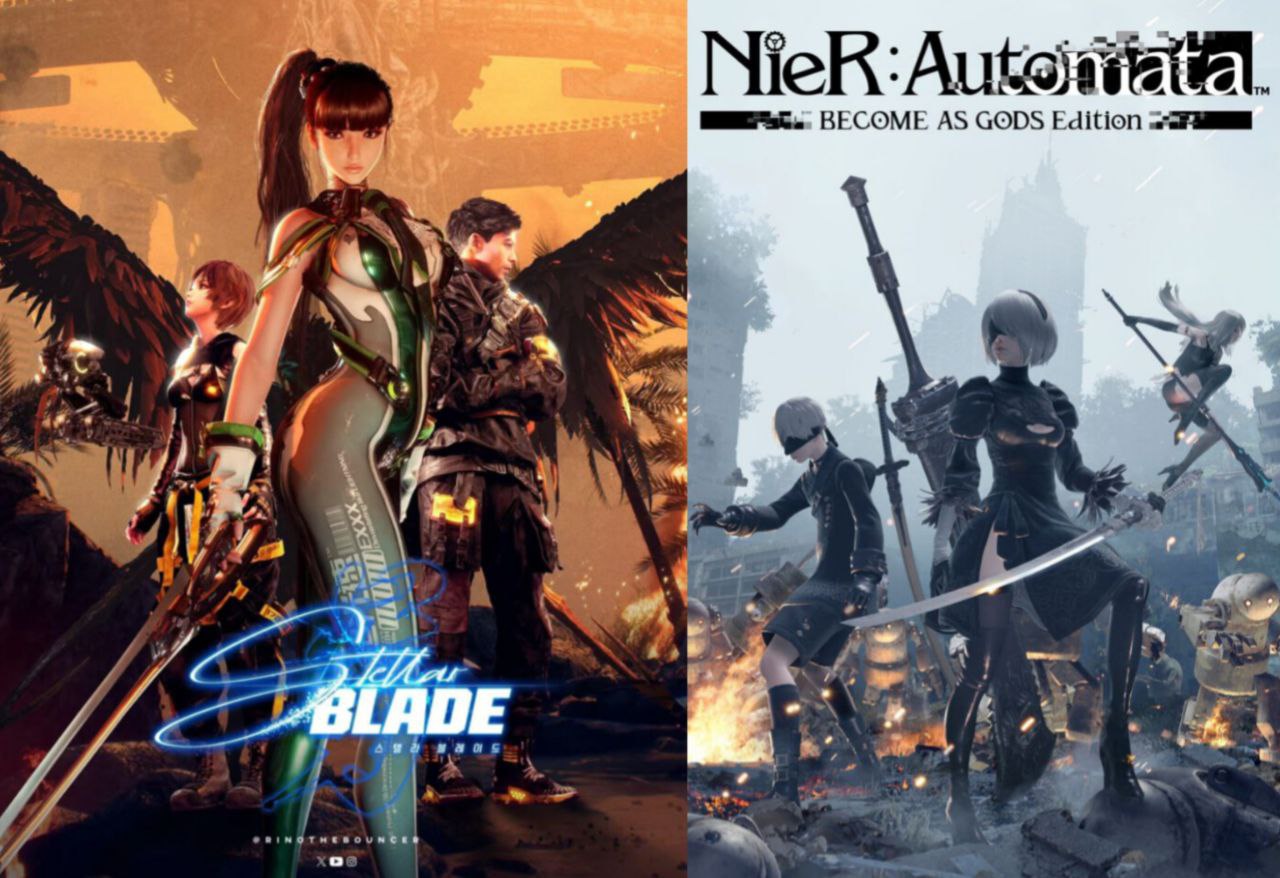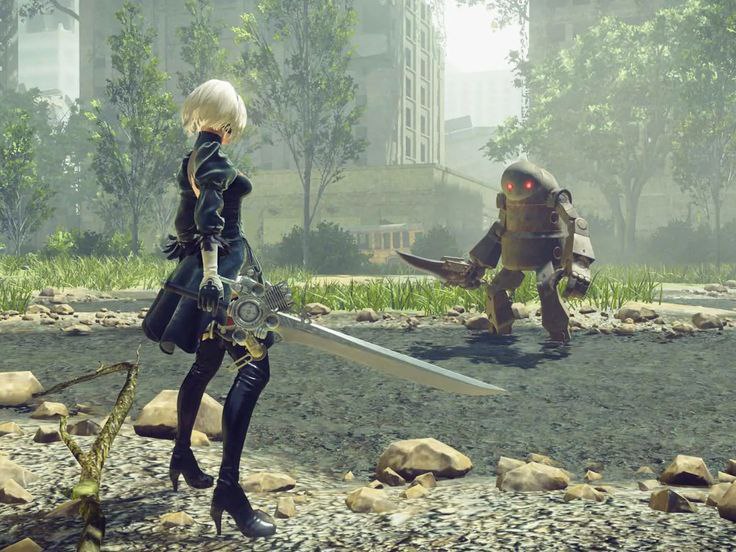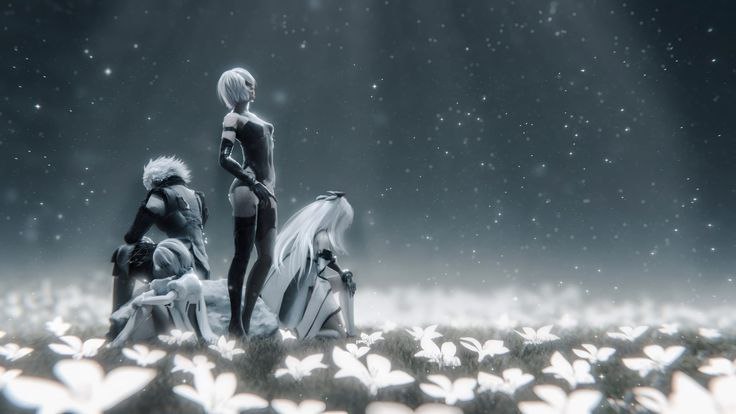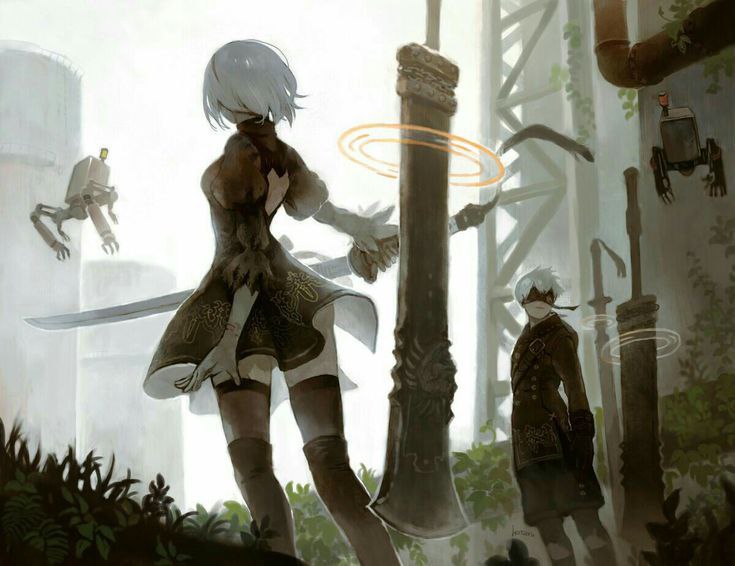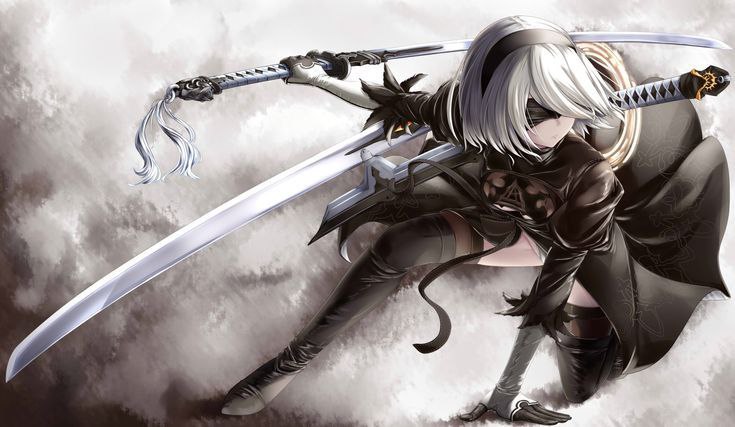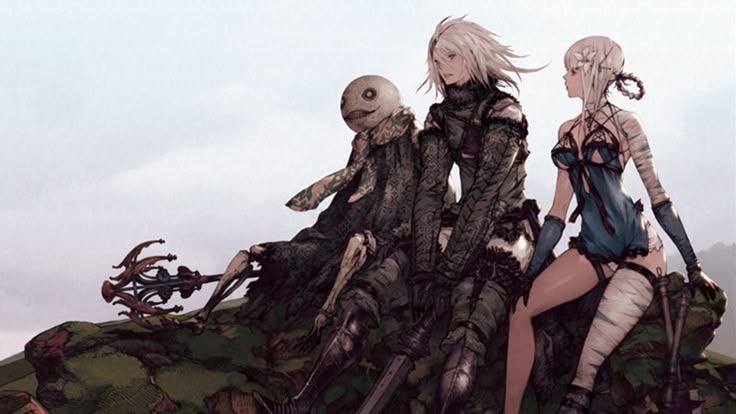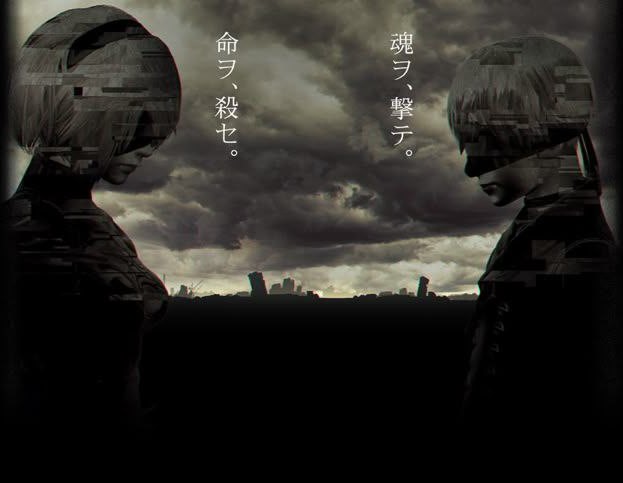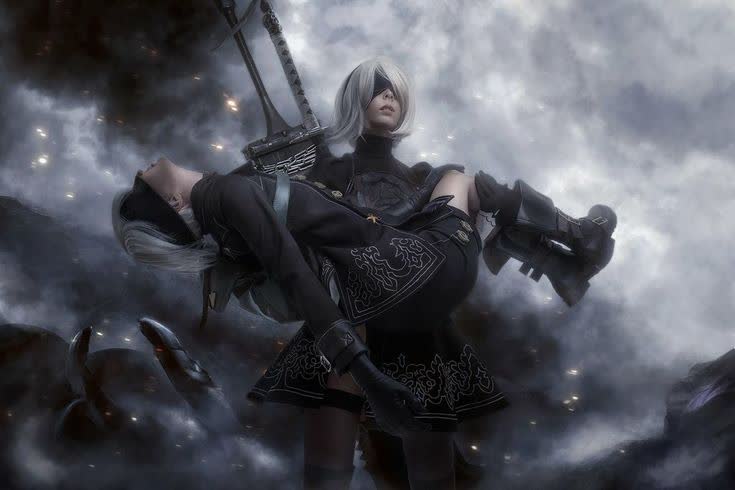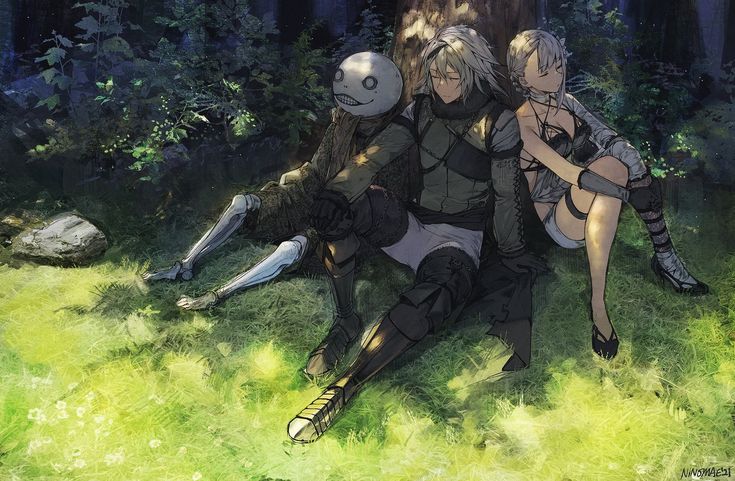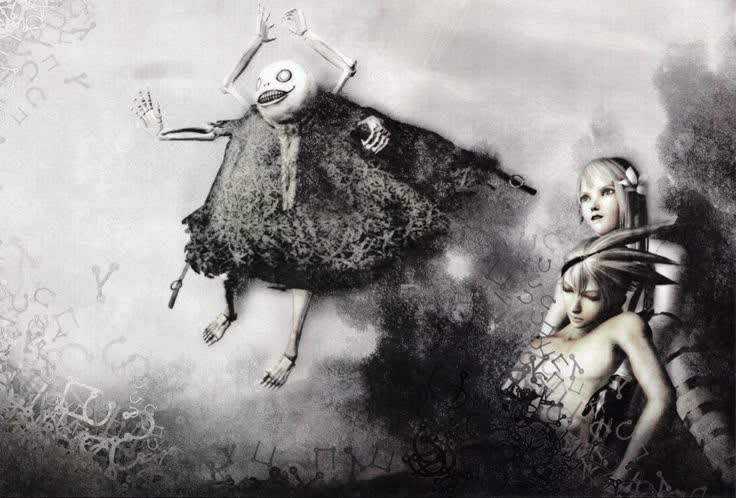Through the Eyes of an Android: Searching for Purpose in NieR: Automata
Opening Reflections
Some games are fun. Some stick with you for a little while after the credits roll. And then... there are games like NieR: Automata — the kind that change something inside you. Not in a loud, dramatic way, but quietly, like a song you didn’t know you needed until it’s already echoing in your heart.
I still remember my first glimpse of 2B — standing in silence, surrounded by ruins, sword in hand, her eyes hidden behind that black visor. She looked emotionless. Untouchable. But there was something about her stillness that felt... heavy. Like she was carrying a thousand untold stories. And I had no idea that stepping into her world meant stepping into one of the most emotional journeys I’ve ever experienced in a game.
On the surface, NieR: Automata is a sci-fi story about androids and machines locked in endless battle. But underneath that, it’s something far more intimate. It’s a quiet meditation on existence. On identity. On the ache of not knowing who you really are — and the fear that maybe… you never will.
As I played — moving from Ending A to B, C, and beyond — the lines between character and self began to blur. 9S’s desperation to uncover the truth felt personal. 2B’s restrained grief and duty-driven silence hit like a weight I recognized. A2’s rage, her loneliness, her reluctance to trust — it all mirrored feelings I hadn’t realized I was carrying. Their stories didn’t just unfold on-screen. They unfolded *within* me.
That’s what makes this game so powerful. It doesn’t shout its message. It whispers it, in the quiet moments between combat. In the choices that hurt. In the endings that don’t resolve — they just ask deeper questions.
This isn’t a review. It’s not a critique. It’s just one player’s attempt to put into words what this experience meant. Because somewhere along the way, NieR: Automata stopped being just a game — and became a mirror. One that gently asked, “Who are you beneath the surface?” “What gives your life meaning when everything else falls away?”
I still don’t have all the answers. But thanks to this game, I think I’ve started asking better questions. And maybe… that’s enough.
Let’s take that journey together.

Lost Within Circuits and Souls: Rediscovering Myself in NieR: Automata
When I first picked up NieR: Automata, I expected beautiful visuals, fast-paced combat, and a soundtrack I’d hum for days. What I didn’t expect was to walk away feeling changed. I wasn’t ready for the emotional storm it would stir — or for the quiet ways it would make me look inward. What started as a game became something much more: a mirror held up to the parts of myself I hadn’t dared to face in a long time.
It’s strange, isn’t it? That machines — built to follow orders and simulate life — could feel more *human* than most people. Watching 2B, so composed on the surface, hide a grief she doesn’t fully understand... it broke something in me. Her silence spoke volumes. Her every movement carried the weight of unspoken sorrow. She wasn’t just following orders — she was trying to survive the burden of meaninglessness.
And then there was 9S. Vulnerable, curious, too open for a world that didn’t deserve him. Watching his world crumble piece by piece — watching him unravel — felt too familiar. Like looking into a reflection that whispered: "You’ve been here before, haven’t you?" His grief wasn’t theatrical. It was quiet. Real. Raw. And it hurt in all the ways I didn’t know I needed to feel.
A2, with her scars and silence, was the missing piece I didn’t know I was searching for. She didn’t need to say much — her presence alone carried a quiet defiance, a kind of ache that felt deeply personal. Through her, I realized survival isn’t always loud. Sometimes it’s just the act of keeping your feet on the ground when everything in you wants to run. And that... that’s strength.
What makes NieR: Automata unforgettable isn’t just its story — it’s the questions it leaves behind. It doesn’t spoon-feed answers. It lets you sit with the uncertainty. The machines, the androids, the shifting genres and perspectives — they all echo a deeper message: life is messy, and meaning doesn’t come pre-written. We stumble, we repeat, we cling to patterns hoping this time it’ll be different.
Even the structure of the game feels like a message. It doesn’t just *show* you a story — it brings you into it. You’re not just watching these characters suffer and grow. You *are* them. You feel 2B’s restraint, 9S’s desperation, A2’s quiet grief — and through them, you meet yourself in unexpected ways.
That final sequence — I won’t spoil it — didn’t feel like a traditional ending. It felt like a quiet reckoning. Like the game reached out and asked something from me — not as a player, but as a person. And I gave it. Not because I had to… but because I wanted to. Because it felt *real*.
That’s the heart of NieR: Automata. It’s not just a game. It’s a soul-searching experience. It's raw. It's flawed. It's hauntingly beautiful. And somehow, in the quiet wreckage it leaves behind, you find pieces of yourself that you didn’t even know were missing.
Even now, long after the credits have rolled, I still find myself asking: “Who am I, really?” And maybe I don’t know the full answer yet — but because of this journey, I know I’m not afraid to keep asking.
Further Records Available — Ready to Discover?
Even after all that’s been revealed, echoes of forgotten truths still linger.
If you're ready… the next fragments are waiting to be found.
More articles from the world of Nier
More articles from the game Final Fantasy
More articles from the Understand Souls
More articles from the game Death Stranding
🎧 Dive Into the Unknown
I’ve recorded a special podcast exploring one of the many deep theories from the world of Nier. While it’s the only episode for now, there’s so much more to discover in the articles below—until the next voice finds its way to you.


